Charlie Hurley even as the King of Sunderland never forgot his Cork roots
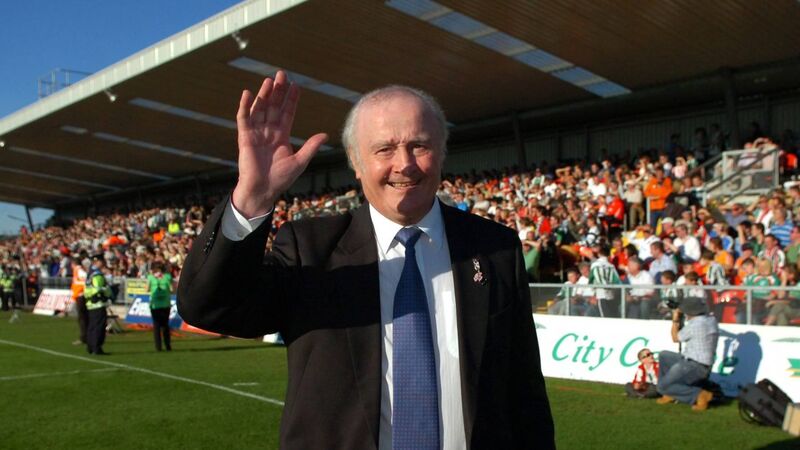
Corkman and former Sunderland great Charlie Hurley at the friendly against Cork City at Turner's Cross in 2007
CHARLIE HURLEY, the mere mention of his revered name, conjures up magical memories of soccer in the 50s and 60s when the beloved son of Cork was a sporting idol on whom fans depended when they needed a saviour.
His roots can be traced back to the nineteenth century and to the Middle Parish where his grandfather Daniel married Julia Cullinane from Crosses Green.
"Charlie boy, you get nothing for finishing second," was what my father Patrick always said.
"I suppose it was that winning mentality which motivated me throughout my football career,” remarked Charlie Hurley when I spoke to him by phone on Tuesday.
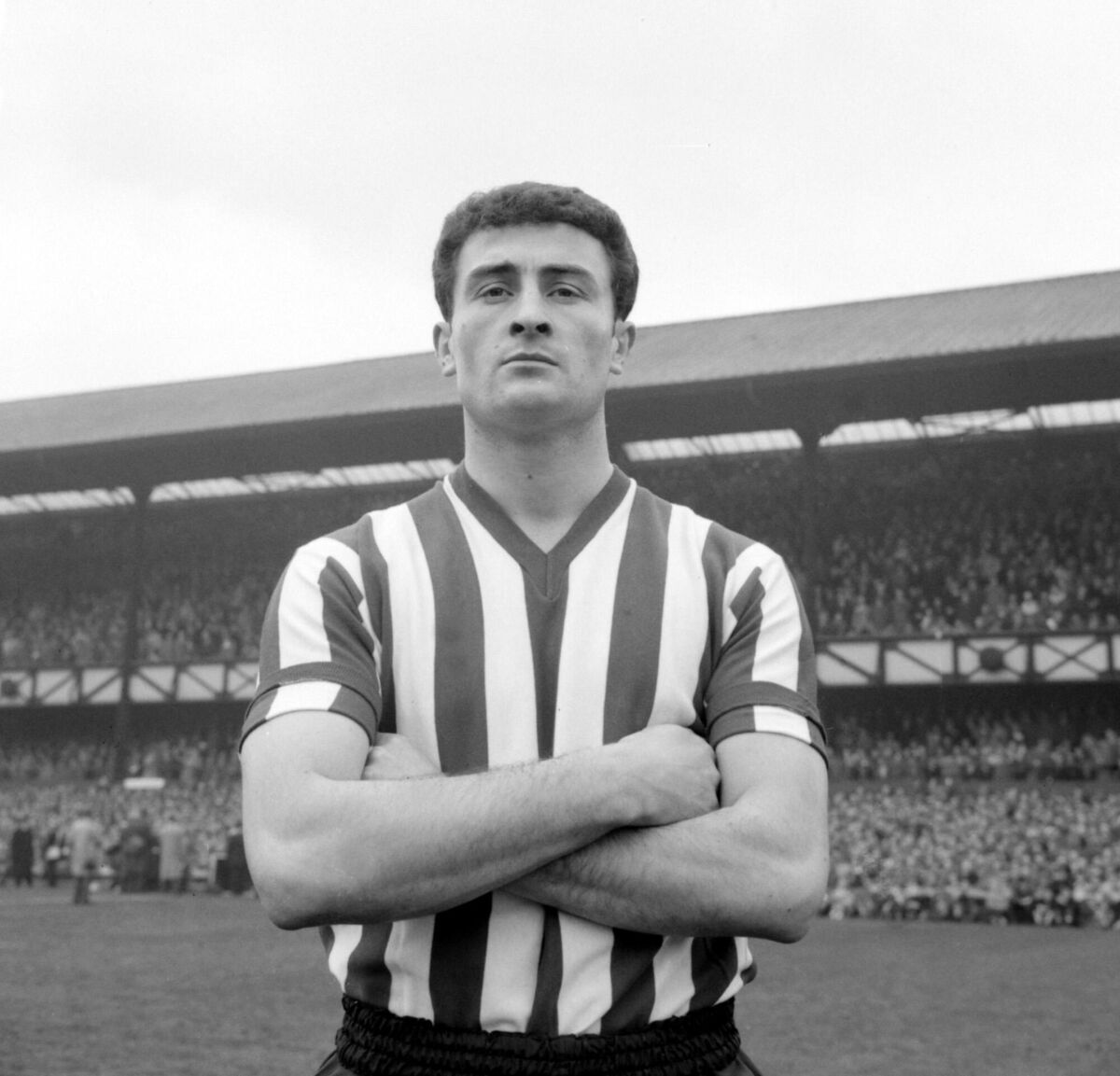
“As a youngster I was very speedy and won a few medals in the sprint events at athletic meetings in Romford and at the Ford Foundry Sports day in Dagenham.
"I remember one occasion on an afternoon when the meeting was curtailed as a result of poor weather, boys of different ages competed against each other in handicap sprints.
"The winners received 5 shillings with the second and third getting 2 shillings and a shilling each.
"I had to give a little nipper who was five years younger a fifty yard start and even though I probably broke the English Schools record the little rascal pipped me.
"When I handed over the two shillings to my dad to mind all he said was 'Charlie boy, imagine being beaten by a teeny bopper.'
“My dad, a proud Corkonian, was a winner, he even hated losing at pitch and toss, a game he brought over from his native Cork.
"He instilled that mentality into us as kids and that’s why I love Roy Keane,” said Charlie.
“Keane has that same unbelievable determination and you can see that it has already rubbed off on Sunderland.
“Since his arrival the City is on the up and being Irish, or better again being from Cork, guarantees you a royal welcome on Wearside,” he continued.
Ever before Roy’s arrival at the Stadium of Light Charlie had been singing his praises.
“I’m sure he will put the club, which I hold close to my heart, back on the map. Quinny and Roy will be very good for Sunderland, Irish footballers have been good for the club and there are plenty of them there now.
”I enjoyed my own managerial career and regretted leaving Reading where I felt I could have achieved something but, then again, maybe it was better that I got out when I did as managing professional football clubs is extremely stressful and not good for the ticker.
"It was bad enough having had to have replacement knee and hip joint operations, a legacy of my football years no doubt. As for the originals I left them at Roker Park,” he joked.
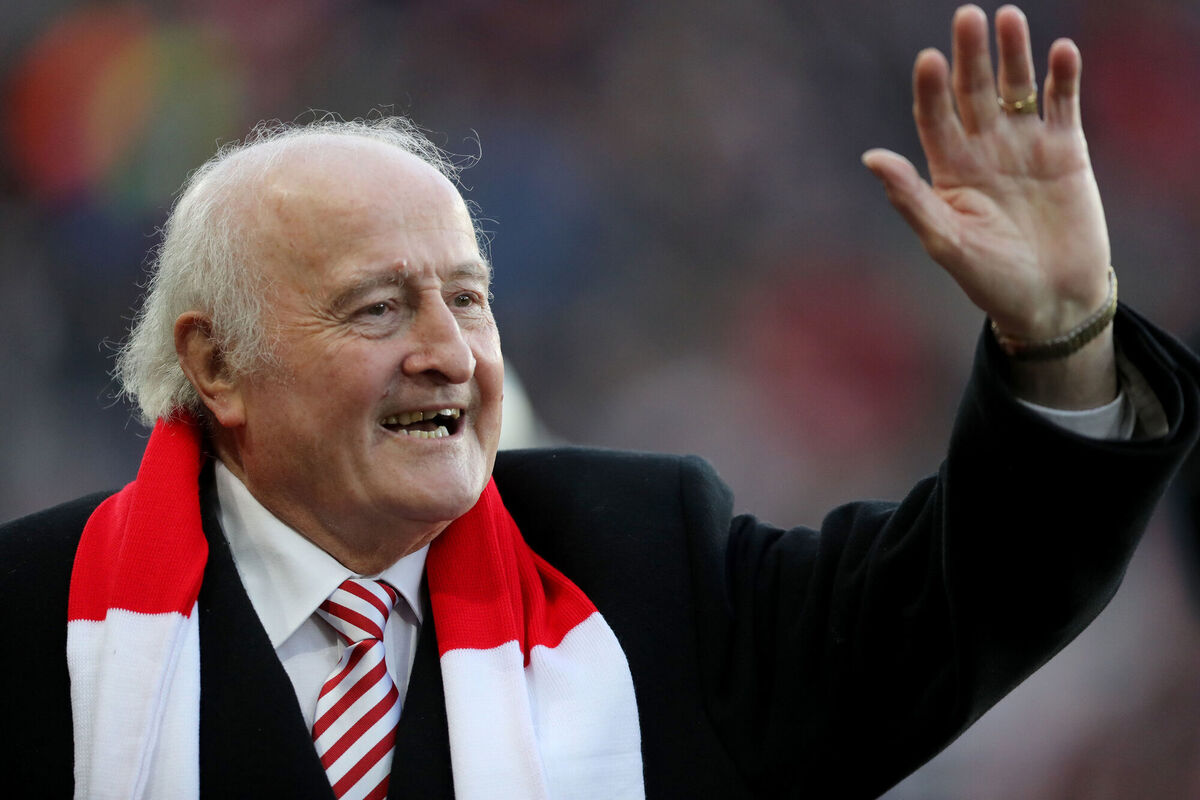
Despite the fact that he was recognised as being a clever ball playing centre half he was as tough as teak and had some hair raising tussles with the best forwards in the game.
Yet, in a professional career spanning 20 years and over 600 games Charlie was never sent off and was only cautioned on a handful of occasions.
Even though the game was extremely physical he rarely was in trouble with referees as he was recognised as a ball winner and, here again, his father’s philosophy: ‘you get nothing for coming second,’ helped him to get to it first.
Though Charlie played against greats such as Bobby Charlton, Jimmy Greaves, John Charles, Denis Law, Roy Bently, Geoff Hurst, Bobby Smith, Ian St John and Peter Osgood he rated big Derek Dougan as the most difficult opponent he faced.
“We had some great battles with no quarter asked or given and when it was over we a few pints of stout together.
"I was a good footballer and I could mix it if I had to, but I wouldn't have fancied hurling."
As referred to elsewhere in this supplement the promotion clash against Charlton in ’64 when he was shouldered off the pitch and his International debut against England, also well covered elsewhere, were the games Charlie remembers most.
“The greatest kick in my father's life was when I was chosen for my first Irish Cap against England.
"Ford's foundry was full of Irishmen and they didn’t worked for a week - mind, it was hell on earth, that place.
"Our preparation was disastrous; I was knackered when I arrived in Dublin having had to get a taxi, a train and an overnight boat sailing.
"I didn’t sleep well either that night at the thought of facing Tommy Taylor. It was the only International match my dad ever saw and I was delighted to make him a proud father.
"£30 was what we got paid in those days for playing International football.”
Two years later World Cup runners-up Sweden were Ireland’s opponents in Dalymount and en route they stopped off at Wembley where they defeated the home side 3-2.
We chatted away about that amazing game for a while with Charlie recalling that Agne Simmonsson got a hat-trick for the Swedes in Wembley and the centre forward, said to be worth £280,000 or £100 an ounce (what weight was he?) was expected to also destroy the Irish.
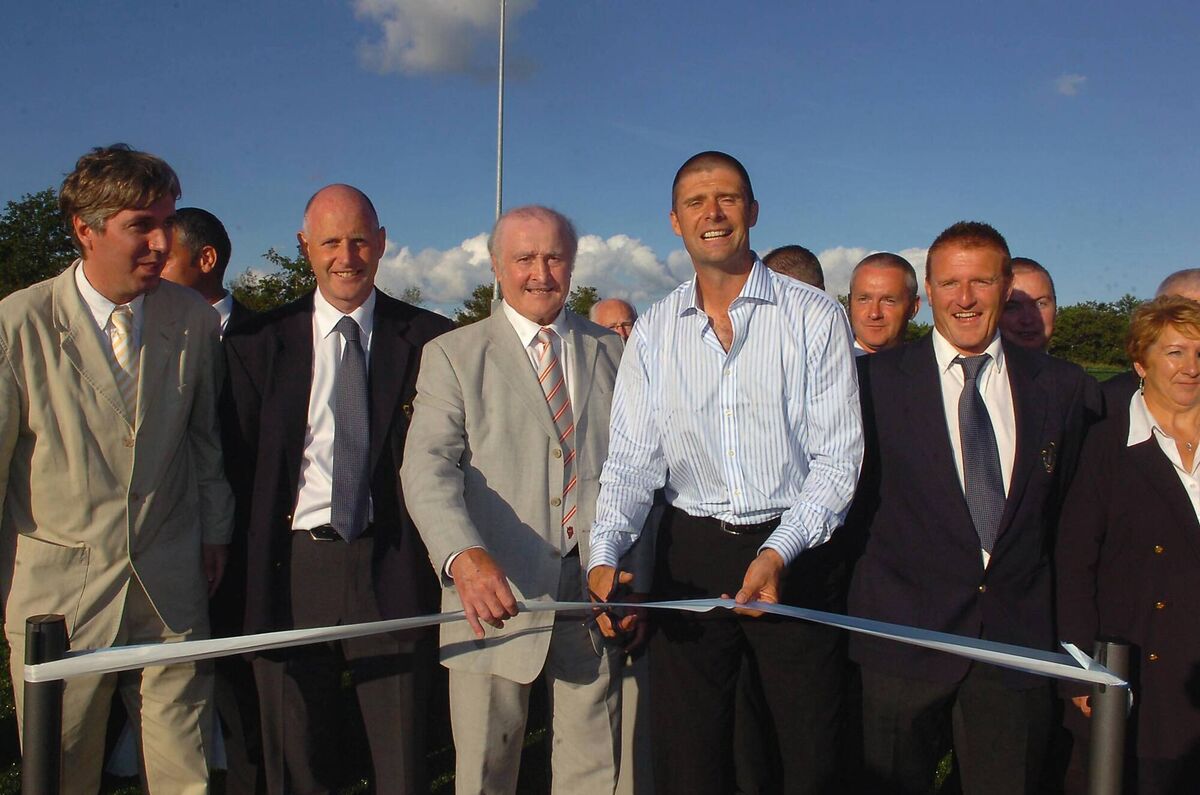
Charlie read all the paper talk and, just as he had done with Tommy Taylor, he put Simmonsson into his back pocket as the fighting Irish recorded a memorable 3-2 victory with debut boy Johnny Giles hitting a screamer.
To put that £280,000 Simmonsson valuation into perspective, John Charles transferred to Juventus two years earlier for £65,000 while the magical £100,000 wasn’t breached until after Jimmy Greaves’ transfer to Torino for £99,999 in 1961.
By then the English media were wishing Charlie Hurley was English but when I asked him if he had any regrets he said: “None whatever.
"It was nice to be rated so highly but I was Irish and proud of it and my father would have taken my life if I even considered playing for England.
"I loved playing for Ireland and especially in Dalymount where the fans were brilliant. I played 40 times and, would you believe it, I don’t have one Irish jersey in the house.
"My father and brother were staunch members of the Dagenham based Sunnyside Football Club They went over to Cobh one year to play a friendly and I gave all my International shirts to the team for the match.
"I have all my caps bar one and I gave that to a great friend and former team-mate Jimmy McNab. It’s heartening to know that I have been held in such high regard by players of my era and the fans, even those supporting opposing teams.
”I was only six or seven months old when our parents brought us to England and my mother reckoned it was a rough old boat crossing.
"I know dad hated leaving, he loved hurling and other local past-times.”
Charlie has only been back to Cork on three occasions; as a youngsters to stay with his grandparents in Devonshire Avenue when the Mardyke and its amazing amenities became his playground for six memorable weeks; to play in Patsy Dorgan’s benefit at Flower Lodge in 1963 when he travelled over with his good friends Pat Saward and Don Donovan, joining up with Doug (Derek Dougan) and all the Blackburn lads in Cork; and most recently in 2001 when he was a guest of the Cork AUL who presented him with a “Legend of Cork Soccer Award.
“It’s nice to be remembered like that," he said, referring to his recognition by Cork soccer people.
“I was also the first ever recipient of the Irish International Hall of Fame Award.
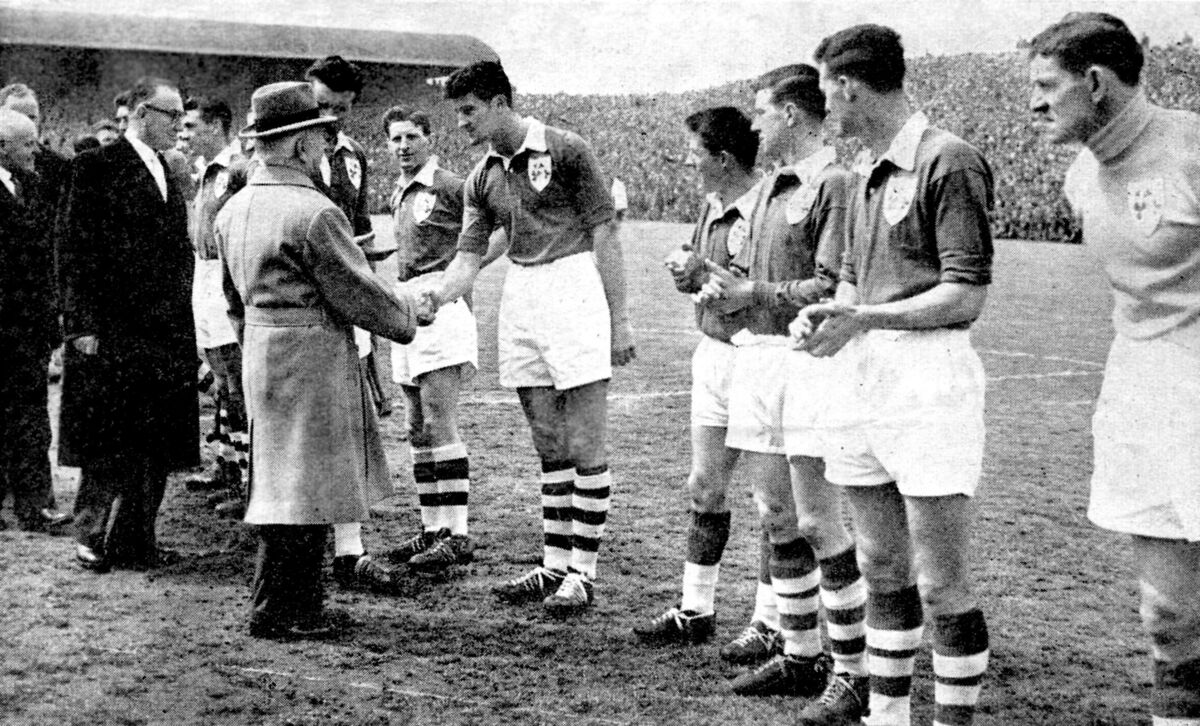
“In fact I won no major awards during my career and since being chosen as ‘Sunderland’s Player of the Century’ I have had a similar award from my great friends in Millwall.”
Charlie had the last word as, just before we ended our nice chat, he quipped “I was runner up to Bobby Moore in the 1964 Footballer of the Year.
"Everyone remembers Bobby, who remembers that I was second?
"My dad was right."
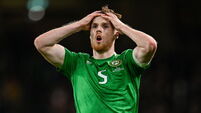
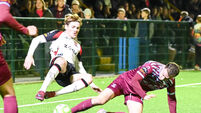
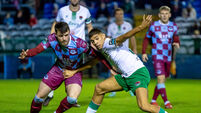
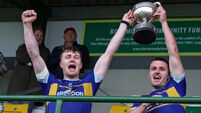
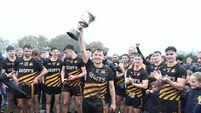
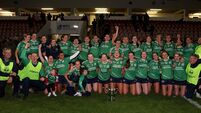
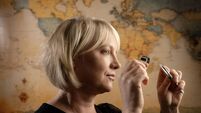
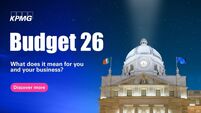

 App?
App?







